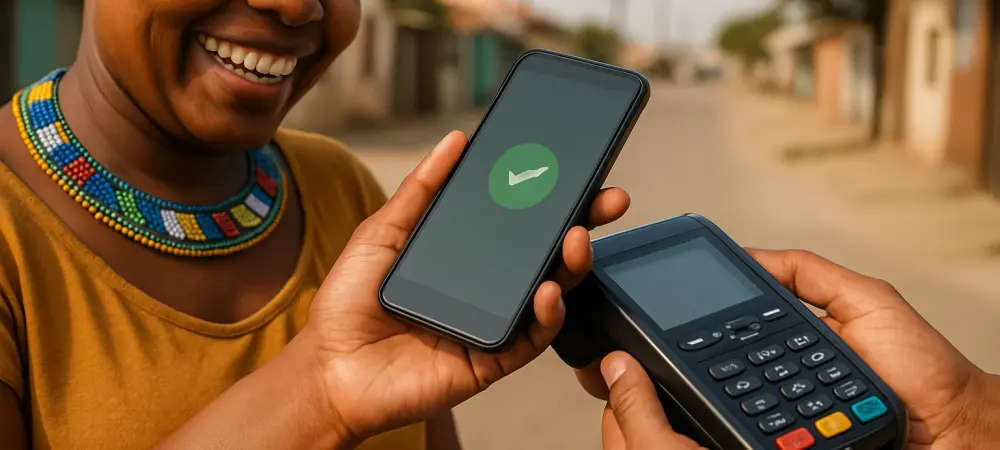Setting the Stage for a Digital Payment Revolution
In South Africa, where mobile phone penetration stands at an impressive 91%, the landscape of financial transactions is undergoing a seismic shift toward digital solutions, reshaping how people manage money. Imagine a market where cash is no longer king, and a simple tap on a smartphone can handle everything from daily purchases to complex financial management. This is the reality that innovative platforms like PayoCard, introduced by a global leader in payment solutions, are creating. This analysis delves into the transformative role of PayoCard in South Africa’s mobile payments sector, exploring current trends, market data, and future projections. The purpose is to uncover how this mobile-first tool addresses longstanding challenges and positions itself as a catalyst for growth and inclusion in a rapidly evolving digital economy.
Decoding Market Dynamics and PayoCard’s Strategic Positioning
Unveiling Trends in South Africa’s Digital Payment Ecosystem
South Africa’s journey from a cash-dominated economy to a digital-first marketplace has been marked by significant milestones over recent years. With a card payment sector projected to reach $206.2 billion by 2029, growing at a compound annual growth rate (CAGR) of 6.7%, the appetite for efficient, accessible payment solutions is undeniable. Mobile payments, in particular, have surged due to high smartphone adoption, yet traditional card services often lag behind, burdened by slow deployment timelines and high operational costs for issuers. PayoCard enters this space as a game-changer, offering a streamlined, mobile-first platform that reduces these barriers, enabling FinTechs and digital banks to roll out card services with unprecedented speed.
The shift toward mobile solutions is not merely a trend but a necessity in a country with diverse economic and geographic challenges. Urban centers like Johannesburg and Cape Town are hubs of digital innovation, while rural areas still grapple with limited banking infrastructure. PayoCard’s design, which allows users to manage cards via an intuitive app—checking balances, freezing cards, or resetting PINs—bridges this gap by minimizing the need for physical touchpoints. This analysis highlights how such innovations align with market demands for convenience and accessibility, setting a new benchmark for user engagement in the financial sector.
Analyzing PayoCard’s Competitive Edge and User-Centric Features
A deeper look into PayoCard’s offerings reveals a strategic focus on user empowerment, a critical factor in gaining market traction. The platform’s self-service capabilities enable cardholders to bypass traditional banking inconveniences, such as long lines or delayed customer support, by providing real-time control over their financial tools directly from their mobile devices. This resonates strongly in a market where consumer expectations are shifting toward instant, hassle-free experiences. Additionally, PayoCard’s integration with existing systems ensures that issuers can deploy services swiftly, cutting down on resource-heavy infrastructure costs.
Security remains a cornerstone of PayoCard’s value proposition, with compliance to stringent standards like PCI DSS addressing consumer concerns about data privacy in a digital-first environment. While the platform excels in urban settings with robust internet connectivity, challenges persist in ensuring equal accessibility for users in remote areas or those with limited digital literacy. Efforts to simplify the user interface and provide educational resources are steps in the right direction, positioning PayoCard as not just a tool for the tech-savvy but a potential lifeline for the underserved.
Exploring Strategic Alliances and Market Expansion Opportunities
Partnerships play a pivotal role in amplifying PayoCard’s impact within South Africa’s payment landscape. A notable collaboration with a major global card network focuses on extending digital payment access to underserved communities through rapid issuance of both physical and virtual cards. This alliance targets banks, FinTechs, and retailers, creating a ripple effect that enhances market penetration. Furthermore, the relocation of regional headquarters to Sandton, Johannesburg, underscores a commitment to understanding and addressing local market nuances.
Events such as industry roadshows in Cape Town have also bolstered PayoCard’s visibility, fostering connections with key stakeholders and showcasing its potential to revolutionize card services. However, regional disparities—such as varying levels of technological infrastructure between urban and rural zones—pose unique hurdles. Tailoring solutions to these diverse needs, while maintaining a focus on scalability, will be crucial for sustained growth. This analysis suggests that strategic regional investments and partnerships are vital for navigating such complexities and cementing market leadership.
Forecasting Growth Trajectories and Technological Advancements
Looking ahead, the mobile payments sector in South Africa is poised for exponential growth, with platforms like PayoCard at the forefront of this transformation. From 2025 to 2029, the projected expansion of the card payment market signals robust demand for innovative solutions that prioritize speed and accessibility. Emerging technologies, such as contactless payments and potential integration with wearable devices, could further enhance PayoCard’s offerings, catering to evolving consumer preferences for seamless transactions.
The adoption of advanced security measures, including AI-driven fraud detection and biometric authentication, is likely to become a key differentiator in maintaining user trust as digital payments scale. Economic factors, such as increasing disposable incomes in urban areas, alongside regulatory developments around data protection, will shape the trajectory of mobile-first platforms. This forecast indicates that PayoCard’s emphasis on rapid deployment and user empowerment could set an industry standard, provided it adapts to regulatory shifts and technological advancements.
Reflecting on Market Insights and Strategic Pathways
Looking back, this analysis of South Africa’s mobile payments landscape reveals how PayoCard emerged as a transformative force, addressing operational inefficiencies and aligning with the nation’s high mobile penetration to drive financial inclusion. The examination of market trends, competitive features, and strategic partnerships underscores its role in reshaping consumer expectations and issuer capabilities. For stakeholders, the path forward involves leveraging plug-and-play models to accelerate product launches while prioritizing collaborations to expand reach. FinTechs and banks are encouraged to invest in user education to bridge digital literacy gaps, ensuring broader adoption. As the digital economy continues to evolve, the focus shifts to anticipating regulatory changes and integrating cutting-edge technologies to maintain a competitive edge, paving the way for a more inclusive financial future.

